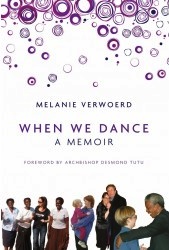 I have written before on this blog about prior restraints and temporary and permanent injunctions in defamation cases. Not long after the South African Constitutional Court effectively outlawed prior restraint in that jurisdiction (see Print Media South Africa v Minister of Home Affairs [2012] ZACC 22 (28 September 2012); blogged here), I learn that Gilligan J in the High Court in Ireland has today granted temporary injunctions to prevent the sale of a memoir written by the South African partner of a deceased celebrity Irish DJ (cover left):
I have written before on this blog about prior restraints and temporary and permanent injunctions in defamation cases. Not long after the South African Constitutional Court effectively outlawed prior restraint in that jurisdiction (see Print Media South Africa v Minister of Home Affairs [2012] ZACC 22 (28 September 2012); blogged here), I learn that Gilligan J in the High Court in Ireland has today granted temporary injunctions to prevent the sale of a memoir written by the South African partner of a deceased celebrity Irish DJ (cover left):
Gerry Ryan biography will not go sale after court challenge
Melanie’s book on Gerry Ryan pulled off shelves in court row
Melanie memoir pulled from shelves
Publication of Gerry Ryan book delayed pending court action
Publication of Verwoerd book on Ryan restrained
Verwoerd book put on hold following court hearing
Verwoerd book put on hold following court hearing
Given the parties involved, it is unsurprising that there is intense media interest in the case. However, the legal issues are interesting too. Section 33 of the Defamation Act, 2009 (also here) provides:
…(1) The High Court … may, upon the application of the plaintiff, make an order prohibiting the publication or further publication of the statement in respect of which the application was made if in its opinion—
(a) the statement is defamatory, and
(b) the defendant has no defence to the action that is reasonably likely to succeed.


